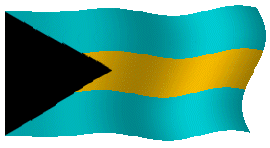In 1965, there were very few recordings that featured Bahamian musicians. In fact, only about a dozen or so recordings existed (Carter 2003). Today we have quite a large volume of music recorded and produced by Bahamians but the struggle of getting them played on most Bahamian radio stations is ongoing. Getting us to love what we do is not only a challenge in the music field but in every aspect of Bahamian culture.
The use of native goods that can be produced locally, as opposed to imports from the United States, Canada, Europe, and other foreign destinations deprives us of a grand opportunity to make great strides forward as a people. We need not look very far to see the pride that exist in Countries like Jamaica, Trinidad, Haiti, and many of our neighbors in the region with regards to their culture, and in particular their music.
The Pyfrom family, Art Music, Frank Penn out of Freeport, King Eric, and Tom Jacobs are among those contributors who recorded and preserved the music of The Bahamas. Additionally, the music contained in the "Lomax" recordings and "Religious Songs & Drums of The Bahamas" (Folkways 1953) did great favor to the preservation of our gospel and folk musical traditions. The one thing upon reflection that I hope we come away with is that what we record today, will affect the way in which we develop ourselves for tomorrow.
One of the great debates in certain circles is the question of "what is Bahamian music?". Although the answers are varied depending on who answers, I support those that can differentiate between the indigenous folk rhythms such as goombay, rake 'n' scrape, junkanoo, from those styles that are born and have been developed in other cultures such as reggae, jazz, rock, etc.
Like most countries, we do have a wide variety of styles in our musical repertoire. The sound of goombay for instance has been developed to a more contemporary sound by artist like Dry Bread, KB, and The Falcons. We are still in our developmental stages, musically and culturally speaking. Searching for that sound which will set us apart from the rest of the world. In that search though, we must allow a good measure of artistic freedom.
Just think, if Tony McKay didn't do rock, reggae, gospel, blues, and all of the other styles that made up his repertoire, we probably would not have been the beneficiaries of his finest work.
Others Like Eddie Minnis, regrets listening to those detractors who said he couldn't sing. Had he not done so, he could have done even more as composer, singer, and the telling of the stories in the fashion that he did. "Bahamians are great actors, imitators, mimes, we can take anything and make it our own" (Carter 2003). If this gift is allowed to flourish, then and only then we can see the true development of our music and culture.
Yes, it has been thirty or so years of independence, but the music of the Bahamas is less diverse than in former years. Out of the many styles that existed, the fusion used in songs like 'Funky Nassau' (Beginning Of The End 1972), and 'Who Let The Dogs Out' (Baha Men 2002) which in the first instance were somewhat rejected by many, turned out to be our most celebrated musical achievements to date. Our most popular group of the seventies "T-Connection" although they fused some Bahamian rhythms into their music, really had to conform and re-invent their style to suit popular demands.
"We must continue to find ways to fuse our music with those rhythms that are right here in our backyard. Trinidad, Haiti, and the rest of the Caribbean and West Indies have the same feeling in their music. After all, we are descendants from he same motherland" (Pindling 2004). We have been trying to get our music accepted by those who have little in common with our culture such as those in America and Europe. Our music is right here in the Caribbean and West Indies. We can even reach out to that great continent of Africa if we truly want a true definition of ourselves.
I hear the similarities in rhythms from Cuba, as do I in music from Curacao and many other countries in this region. These African rhythms came with us, and although these people were scattered all over this hemisphere, we kept a part of this music for ourselves. We made modifications based on whatever instruments were available to us.
Nonetheless, the basic foundation threads through all of our music. It is therefore important for those of us in the region to re-familiarize ourselves with each other’s music in order to gain the true understanding of the question, what is Bahamian music?






